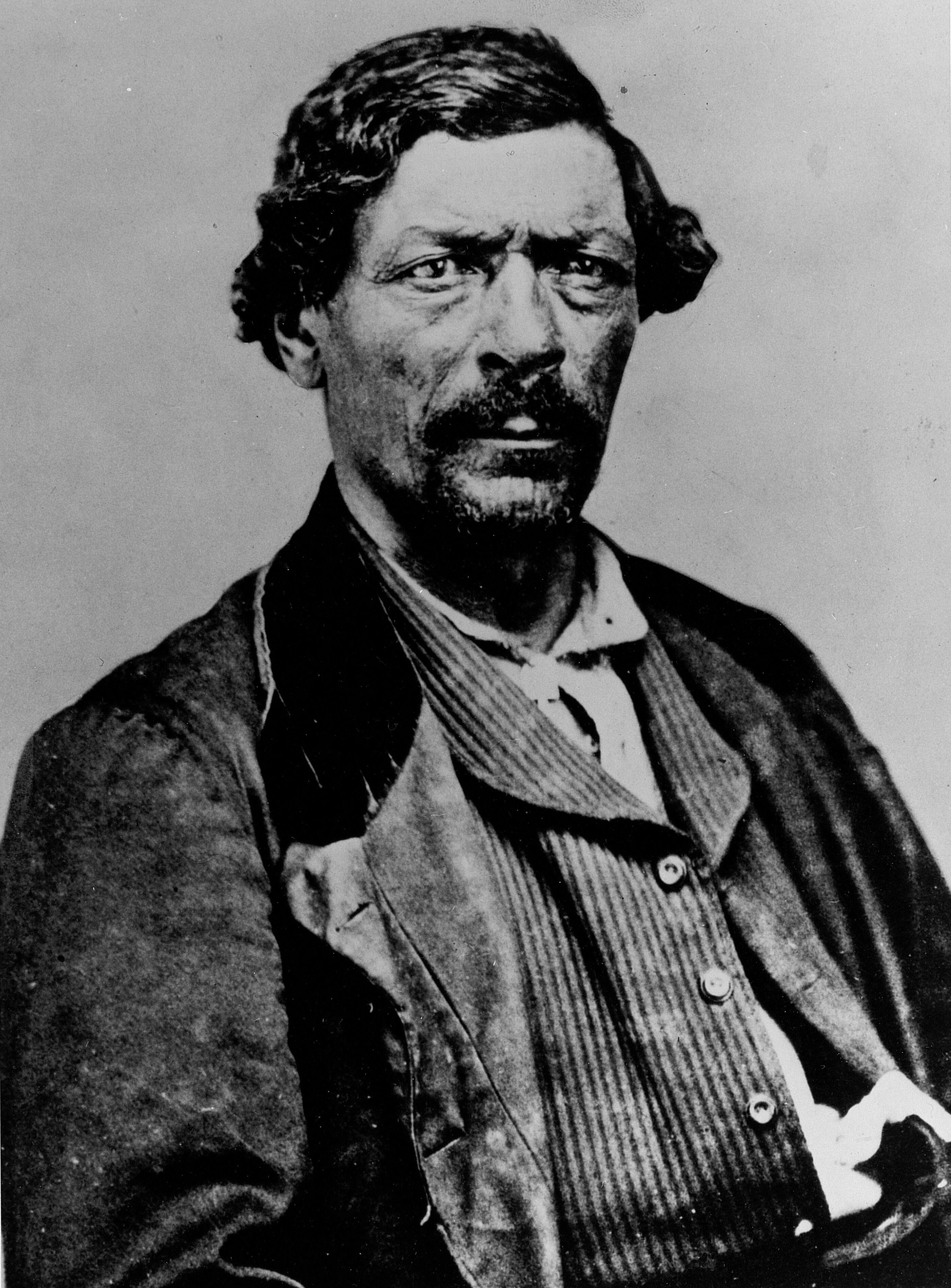Beckwourth, James Pierson, 1798-1866
Enlarge text Shrink text- His The life and adventures of James P. Beckwourth ... 1856.
- Blassingame, W. Jim Beckwourth, 1991.
James Pierson Beckwourth (April 26, 1798/1800 – October 20, 1866) was an American fur trapper, rancher, businessman, explorer, author and scout. Known as "Bloody Arm" because of his skill as a fighter, Beckwourth was of multiracial descent, being born into slavery in Frederick County, Virginia. He was eventually emancipated by his enslaver, who was also his father, and apprenticed to a blacksmith so that he could learn a trade. As a young man, Beckwourth moved to the Western United States, first making connections with fur traders in St. Louis, Missouri. As a mountain man, he lived with the Crow people for several years. He is credited with the discovery of Beckwourth Pass, the lowest pass through the Sierra Nevada, connecting Reno, Nevada, and Portola, California during the California Gold Rush. He improved the Beckwourth Trail, which thousands of settlers followed to central California. Beckwourth narrated his life story to Thomas D. Bonner, who was described as "an itinerant justice of the peace", but was also a temperance speaker and journalist, who, according to his preface, by chance was present in Beckwourth's rustic California hotel when he decided to dictate his memoirs. The book was published in New York City and London in 1856 as The Life and Adventures of James P. Beckwourth: Mountaineer, Scout and Pioneer, and Chief of the Crow Nation of Indians. A translation appeared in France in 1860. The reliability of Beckworth's autobiography was called into question from the beginning; an editor of it quoted the observation "that some one said of him that some men are rarely worthy of belief, but that Jim was always Beckwourthy of un-belief.": 7 "I knew Jim intimately and he was the biggest liar that ever lived." A review when it appeared called it "half fiction": [P]arts of the tale smack of the "fish story." Mr. Beckwourth, or his narrator, has it all his own way, and we can fancy a lurking smile at the thought how glibly he puts together such a discordant mass of material brought out from the storehouse of memory, where there is no one at hand positively to contradict him. Elinor Wilson has defended Beckwourth's narration as a valuable source of social history, especially for life among the Crow, although not all its details are reliable or accurate. The civil rights movement of the 1960s celebrated Beckwourth as an early African-American pioneer. He has since been featured as a role model in children's literature and textbooks.
Read more on Wikipedia >
 Personality
Personality




